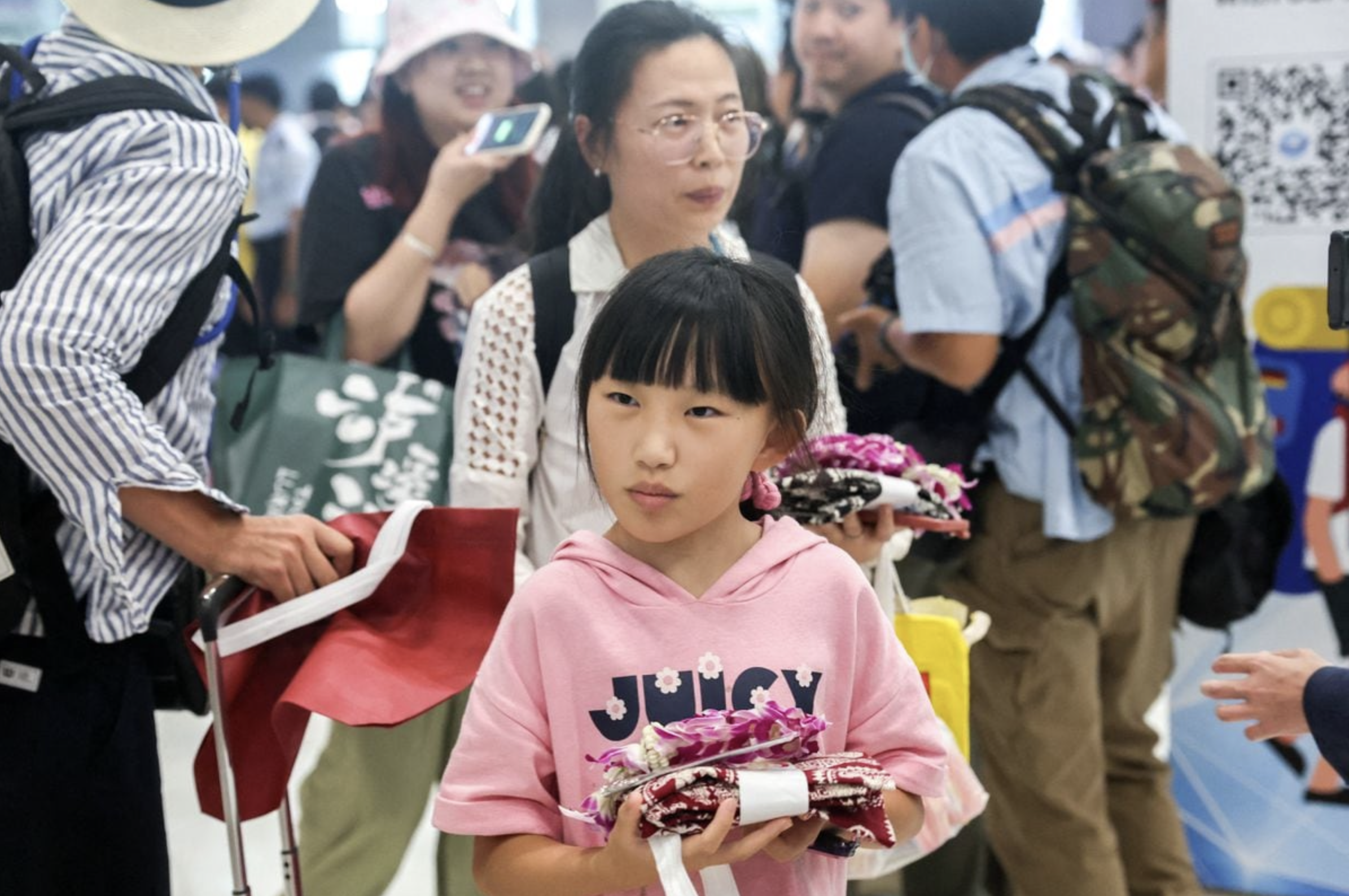BEIJING/BANGKOK -- Chinese travellers flocked to tourist hot-spots across Asia over the Lunar New Year break, with visitor numbers and spending in destinations including Singapore, Thailand and Malaysia exceeding pre-COVID levels.
Visa-free access for Chinese tourists to the Southeast Asia countries boosted traffic and signalled a robust revival in travel since Beijing lifted strict COVID restrictions in early 2023 that had all but shut China's borders for three years.
The increase provides welcome relief to countries that rely on the Chinese and their spending, although the outlook for a sustained recovery in overseas travel is overshadowed by a sluggish mainland economyand volatile markets that have seen consumers tighten their belts at home.
"Despite the macroeconomic headwinds, we believe Chinese citizens are still willing to spend on travel-related experiences ... we think travel-related spending could continue to outpace this overall domestic consumption," HSBC said in a research note.
Bookings to Singapore, Thailand and Malaysia combined jumped more than 30 percent from Feb. 10-17 compared with 2019, according to travel website operator Trip.com, with Chinese visitors to Hong Kong, Macau, Japan and South Korea also increasing.
The holiday in 2024 lasted for eight days, one day more than the Lunar New Year break in 2019.
Reflecting the boost from visa waivers, hotel bookings for Bangkok tripled over the period from Feb. 10-13 year-on-year, while those for Singapore jumped nine-fold, according to travel platform LY.com.
Spending in Singapore, Thailand and Malaysia combined on the Chinese mobile payment platform Alipay increased 7.5 percent in the period from Feb. 9-12 from 2019 levels and nearly 7-fold from last year, Alipay said.
However, overall consumer spending only recovered to 82 percent of levels four years ago, the company said.
Data from the Tourism Authority of Thailand put the number of Chinese tourist arrivals over the holiday at nearly 244,000, beating forecasts, and up more than six-fold from 2023. Spending was about 8.6 billion baht ($239 million) versus 1.3 billion baht in 2023.
Middle East surge
As Chinese scour for new adventures, the Middle East proved a popular Lunar New Year destination, with travel to Saudi Arabia up more than nine-fold from 2019 levels and bookings to United Arab Emirates climbing 60 percent, Trip.com said.
The gambling hub of Macau, the only place in China where citizens can legally gamble in casinos, was visited by more than a million Chinese tourists over the holiday, with average hotel occupancy rates reaching 95 percent, according to official data.
The jump in tourists bodes well for some of the world's largest casino operators in the former Portuguese territory, including Sands China and Wynn Macau.
JP Morgan said in a note it expected daily gross gaming revenues for the peak of the holiday to hit $124 million for the first time in more than four years - higher than the $112 million generated during the October 2023 Golden Week holiday.
Mass gaming rates were forecast to have reached 120 percent of pre-COVID levels, it said, adding that it expects February gross gaming revenues to rise by at least 80 percent year-on-year to $2.36 billion, the highest in more than four years.
Across the border in Hong Kong, leader John Lee said on Tuesday more than 1.2 million Chinese tourists visited the city over Lunar New Year, with hotel occupancy rates reaching 90 percent in the first few days.
South Korea's Justice Ministry said more than 114,000 Chinese visitors entered the country during the holiday, up four percent from 2019, while some travel agents noted tourists were increasingly opting to travel on their own rather than in groups, which meant fewer organised trips to mega-stores.
"With drops in the number of group tourists, we don’t get to see Chinese tourists carrying big shopping bags anymore," an official at a travel agency in Seoul told Reuters, requesting not to be named as he is not authorized to speak to media.
That trend was also seen in Thailand.
"Vendors said there were not many buyers. We also see Chinese tourists carrying very little things. In the past, they went shopping and came back with a pile of things," said Paisarn Sukjarean, president of the Thai Hotels Association's Northern Upper Chapter.
In Japan, department store operator Isetan Mitsukoshi Holdings said that through to Feb. 14 "duty-free sales were significantly higher than the previous year, partly due to the Chinese New Year".
A shift in holiday tastes was reflected in some data as travellers sought more experience-based trips, with Alipay reporting Chinese tourists globally spent 70 percent more on food and beverages compared with pre-COVID levels.
Trip.com said overseas car rentals on its platform jumped 53 percent compared to 2019 and tickets for scenic experiences abroad soared more than 130 percent.
($1 = 36.0300 baht)





















































